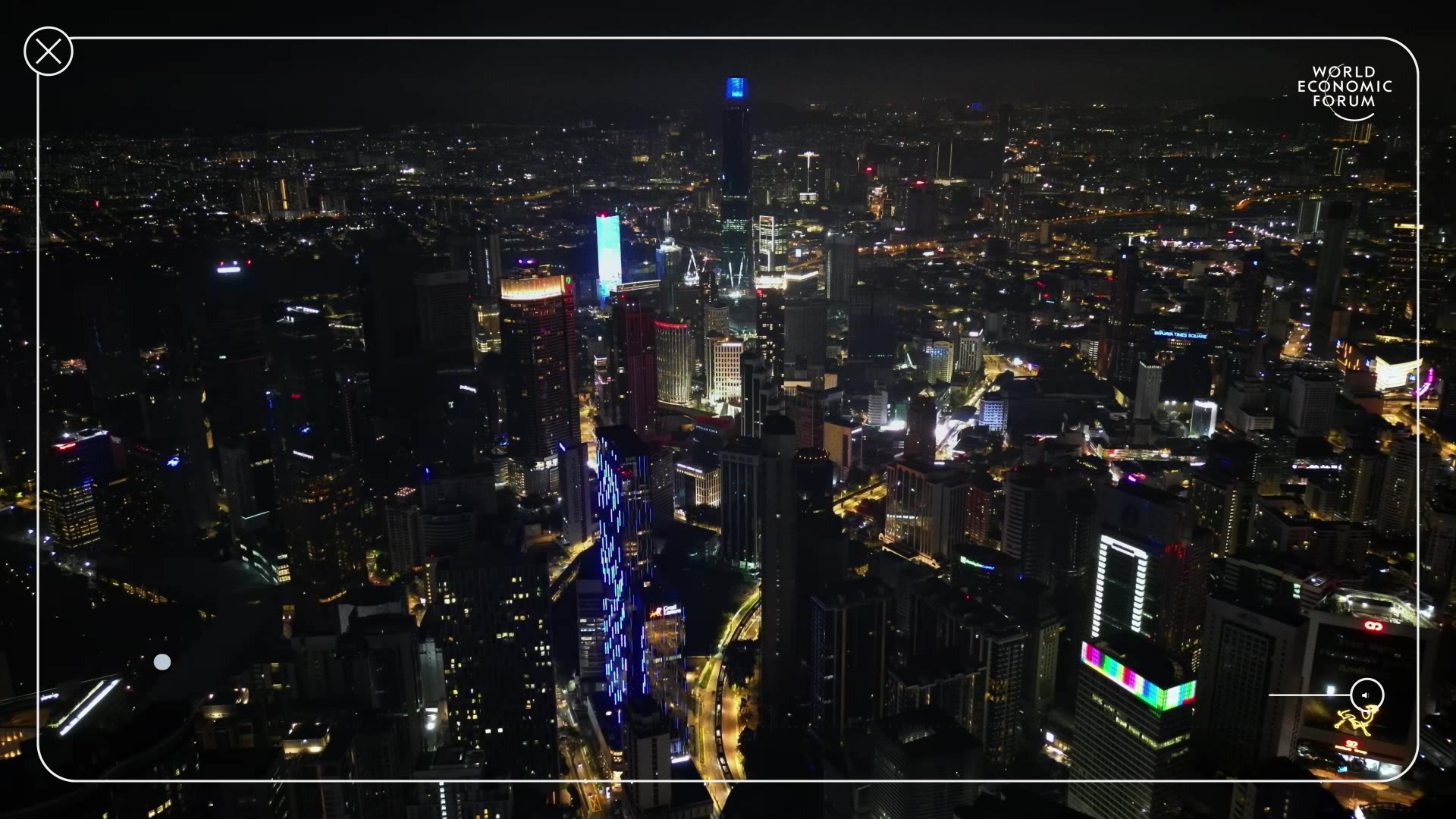Future of cities and local economies at Davos 2024: Key takeaways

Image: Damien Markutt/Unsplash
Jeff Merritt
Head of Centre for Urban Transformation; Member of the Executive Committee, World Economic Forum
Get involved with our crowdsourced digital platform to deliver impact at scale
Stay up to date:
Cities and Urbanization
- As talk of AI filled the media, business leaders in private sessions underscored a more nuanced message: we have the technology and expertise needed to change the world today; but are we effectively putting it to use?
- With cities generating more than 80% of global GDP and hosting the majority of the global population, they will be key to bolstering sustainability, resilience and affordability for growing urban populations.
- Davos 2024 underscored the critical role of cities in shaping our shared future.
Each year as I return from the Annual Meeting of the World Economic Forum in Davos, I am greeted with a predictable flurry of questions, inquiring about key takeaways and insights. The challenge – which I believe is not unique to me and my experience – is that with each passing year, the quantity of takeaways and insights increases almost exponentially.
This is not necessarily a positive thing. Rather, to ensure that these collective insights lead to real action and impact on the ground, discipline and focus are more critical than ever.
How is the World Economic Forum supporting the development of cities and communities globally?
Old tech, new impact
As talk of the power and risk of AI filled the media and billboards on the Promenade in Davos, business leaders in private sessions underscored a more nuanced message: we have the technology and expertise needed to change the world today; but are we effectively putting it to use?
- VELUX highlighted a new prototype for reducing the annual carbon footprint of homes by two-thirds while using widely available technologies and maintaining affordability. In Davos, they announced the first steps to bring this model to Ukraine in partnership with SOS Children's Villages.
- Members of the Global Commission on Nature-Positive Cities, in collaboration with Oliver Wyman, released new guidelines for rehabilitating nature in the urban era, kicking off a public consultation process to accelerate the adoption of nature-based solutions to address pressing urban challenges.
- In a live-streamed session on sustainable construction, public and private sector leaders underscored the need for whole life cycle carbon assessments and performance-based building standards to accelerate design enhancements, operational efficiencies and the adoption of more circular and sustainable models for construction.
- UpLink Top Innovator, it’s electric, highlighted the once-in-a-generation opportunity to develop EV charging infrastructure in cities by rethinking the traditional infrastructure financing and revenue models, as leaders from government, civil society, real estate, engineering and construction challenged the “not-in-my-backyard” mindset.
Fewer coalitions, more alliances
Nearly 3,000 leaders from government, business and civil society from more than 125 countries, including 350 heads of state and government, and ministers, participated in this year’s Annual Meeting, spurring new commitments towards collective action. Convenings in Davos also highlighted the increased need to build bridges across siloed efforts and communities.
- Burkinabé architect and 2024 Crystal Award honouree Francis Kéré joined cultural leaders, policymakers, community representatives, and business executives from more than a dozen industries to mark the first anniversary of the Davos Baukultur Alliance, a global movement to advance more inclusive, sustainable and vibrant communities.
- Retail, e-commerce, mobility and logistics companies joined forces with members of the Global New Mobility Coalition and Alliance for Clean Air to help jumpstart a new cross-industry and cross-sector effort to reduce the physical footprint and environmental impact of urban deliveries in cities across the globe.
- As real estate leaders sounded the alarm on a global housing crisis, members of the Global Future Council on Cities released a broad collection of insights and concrete actions that business, public sector and civil society leaders can leverage to advance more affordable, inclusive and liveable cities.
Think locally, act globally
Amid rising geopolitical tensions, cities and local communities have become a vital proving ground for public-private collaboration and essential means for scaling impact. In parallel, cities across the globe are actively reinventing and redefining themselves to capitalize on new opportunities associated with increased office occupancy, leisure travel, and retail spending.
- Deloitte, UpLink and the World Economic Forum’s Centre for Urban Transformation announced plans to scale the ”Yes SF” model of place-based innovation challenges, building on efforts underway in San Francisco while also bringing this model to new cities across the globe.
- Mastercard teamed up with the World Economic Forum to launch a new global competition for cities, bringing together public and private sector leaders to explore how the activation of communities after dark can help address pressing urban challenges and bolster local economies.
- The Alliance for Urban Innovation announced the opening of applications for its first cohort of pioneer cities that will be working with World Economic Forum partners and world-leading innovators to advance more sustainable communities while also helping to bolster the resiliency of local economies.
To learn more about these efforts and how you can contribute, visit http://www.weforum.org/cities.
Don't miss any update on this topic
Create a free account and access your personalized content collection with our latest publications and analyses.
License and Republishing
World Economic Forum articles may be republished in accordance with the Creative Commons Attribution-NonCommercial-NoDerivatives 4.0 International Public License, and in accordance with our Terms of Use.
The views expressed in this article are those of the author alone and not the World Economic Forum.
Related topics:
The Agenda Weekly
A weekly update of the most important issues driving the global agenda
You can unsubscribe at any time using the link in our emails. For more details, review our privacy policy.
More on Urban TransformationSee all
Lisa Chamberlain
April 25, 2024
Victoria Masterson
April 17, 2024
Fatemeh Aminpour, Ilan Katz and Jennifer Skattebol
April 15, 2024
Victoria Masterson
April 12, 2024







